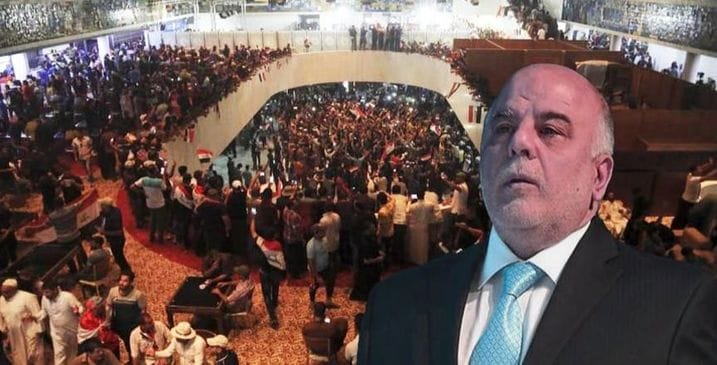Contrary to what one would glean from Abadi’s incessant calls for a ‘technocratic Iraq’, the drive was abandoned long ago. Political bickering has squandered the prime minister's only peace offering to a nation that believes it has been robbed of its rights and left without justice.
The national poverty rate has leapt up by an estimated 30 percent, while unemployment has grown by an additional 8 perecent. A quarter of the adult population is unemployed, while hopes others previously held onto have dissolved beyond recognition. Iraq’s fiscal deficit has inflated to a frightful $25 billion, while men Abadi fired last year still occupy the same senior government roles from which they extract rounded sums of cash to line their pockets with.
In early October, a top Iraqi court overturned Abadi’s decision to abolish the country’s three vice-presidential posts. Judicial spokesman Abdulsatar Bayraqdar declared that the attempt to do so was “unconstitutional”. “The existence of one or more vice presidents of the republic is required by the constitution" as he wrote in an official statement.
Is it accurate to argue that Abadi’s scheme was impractical from the start?
For the first half of 2016, Iraq witnessed spirited yet peaceful protests led by citizens who took their demands for reform into the public realm, and not for the first time. Violence by state forces punctuated the month long demonstrations, particularly in Baghdad, Basra, and Thi Qar during when Sadrists and others stormed government offices and building in the Green Zone. Local police forces fired tear gas canisters at demonstrators, incarcerated others, while a handful more died in vain.
The overall scheme whose failures have empowered the masses to rise up, has been dubbed by local analysts as a ‘failed experiment’ in which Abadi could have been toppled. One Iraqi official that spoke to FRB on the condition of anonymity stated that “Abadi was inching ever closer towards red lines drawn around him by neighbouring states, Iran, America, among others included”.
Iraq’s most important four ministries - interior, defence, finance, and trade - are still without ministers after their deputies were sacked months back to b replaced by technocrats. Ministers have also stood firmly in the way of salary reduction and the scrapping of state employee privileges, ministerial downsizing, as well as attempts to reshuffle the cabinet. Reforms, as it appears, have been stalled at every turn, and the materialisation of such plans has become the lumbering elephant in the room.
An order from the Iraqi parliament in September 2015, called for the abolishment of 50, 000 ghost soldiers, whose wage is guaranteed without having to work. A total of 500 million US dollars was siphoned off every year by these ‘supposed’ state employees. Many viewed the move as a step in the right direction, but millions in Iraqi dinars continue to vanish beneath similar practices of fraud.
Ministries Abadi vowed to merge such as the ministry of science and technology and the ministry of higher education, the environmental industry with the ministry of health, or the ministry of municipalities with the ministry of housing, and finally the ministry of culture and the ministry of tourism, remain unchanged and unreformed, fully staffed and whose employees still receive monthly government pay cheques. The merger exists on paper, but the reality points, once more, to the failure of Abadi’s road to reform.
His efforts have been largely stalled by inter-ministerial rivalries and lasting political competition. In a recent interview with Uthman Al Mukhtar’s Al Araby Al Jadeed journalist, female Iraqi member of parliament Nahwar Daini, known for outspoken criticism, stated that the card of political reform that Abadi has been playing has not worked. She added that the “head of the state cannot act alone, not without the support of the political parties thanks to whom Abadi is in power”. “He must act in accordance with their demands. The fact is they want to maintain the status quo so, in practice, no reforms” Al Daini explained.
Every trick in the political book has been used to resist his efforts, including federal court rulings to thwart any cabinet reshuffle. At the security, administrative, and economic level” no results have been achieved, Daini told Al Araby.
Similar sentiments were voiced by MP Ahmad Al Masari that “reforms have not been met", adding that "reconciliation has not advanced a single step forward, our amnesty law has been emptied of meaning, and the law of accountability has not been passed”.
Talk of reform has been alive and kicking, but that last year has also spawned conflicting narratives that mirror deepening divides within the ruling establishment. Since announcing his scheme, Abadi appears to not moved very, arguable the entire scheme has been abandoned following continuous blowbacks. The experiment, as many refer to it locally has failed, leaving the country edging ever closer to the abyss.


 RSS Feed
RSS Feed